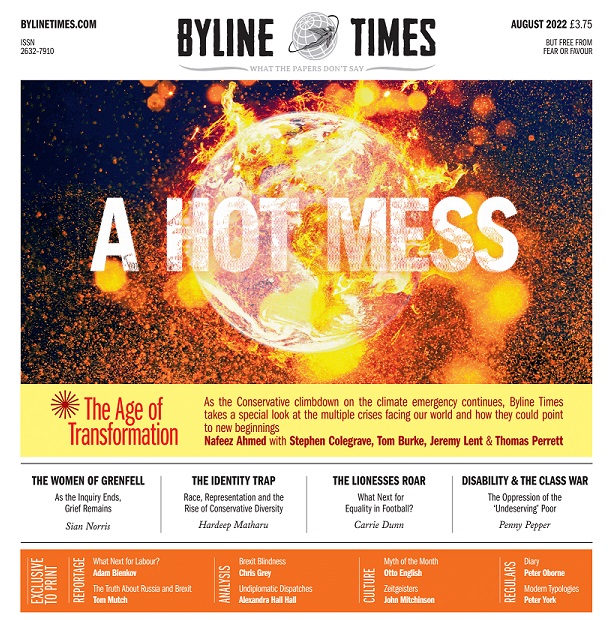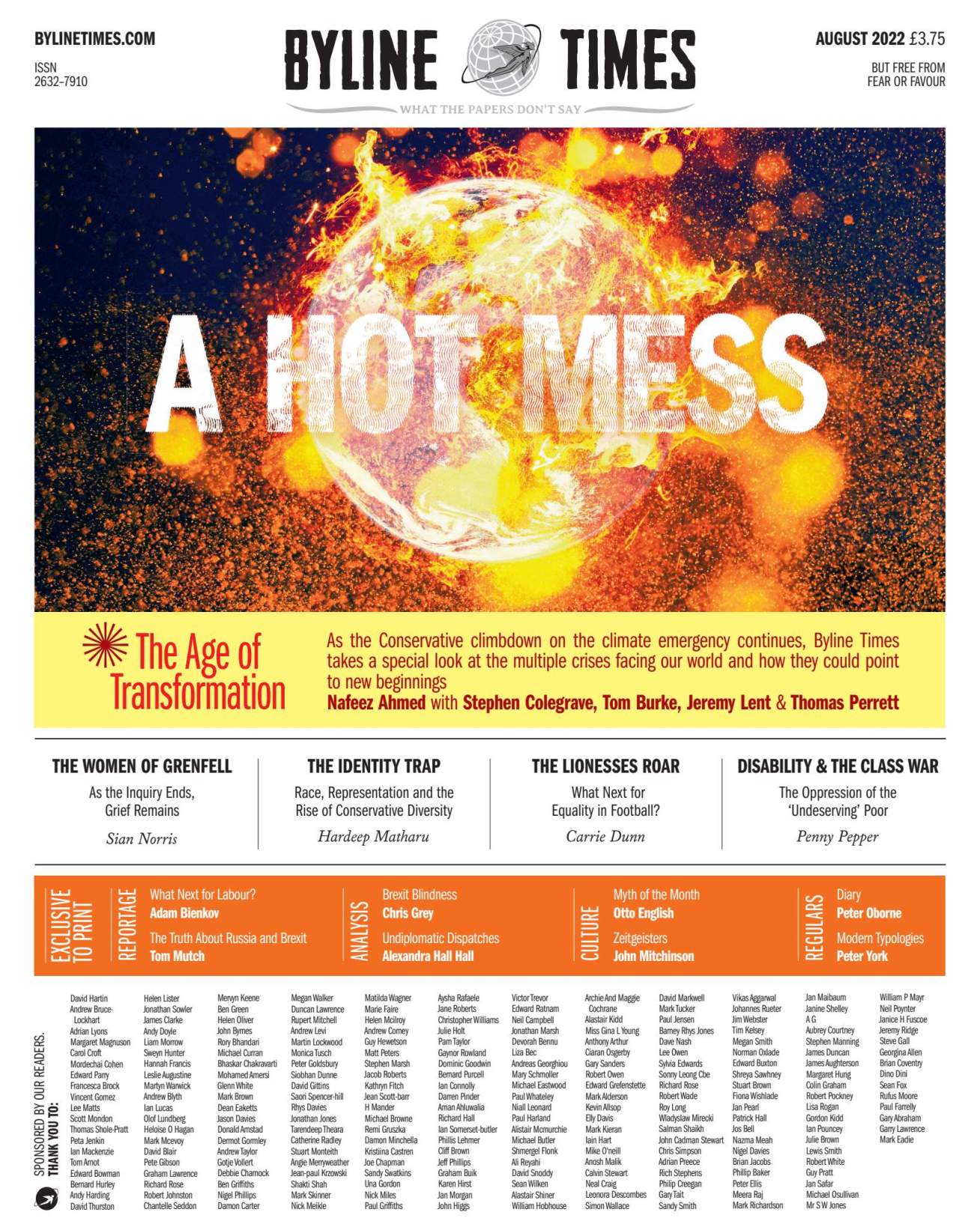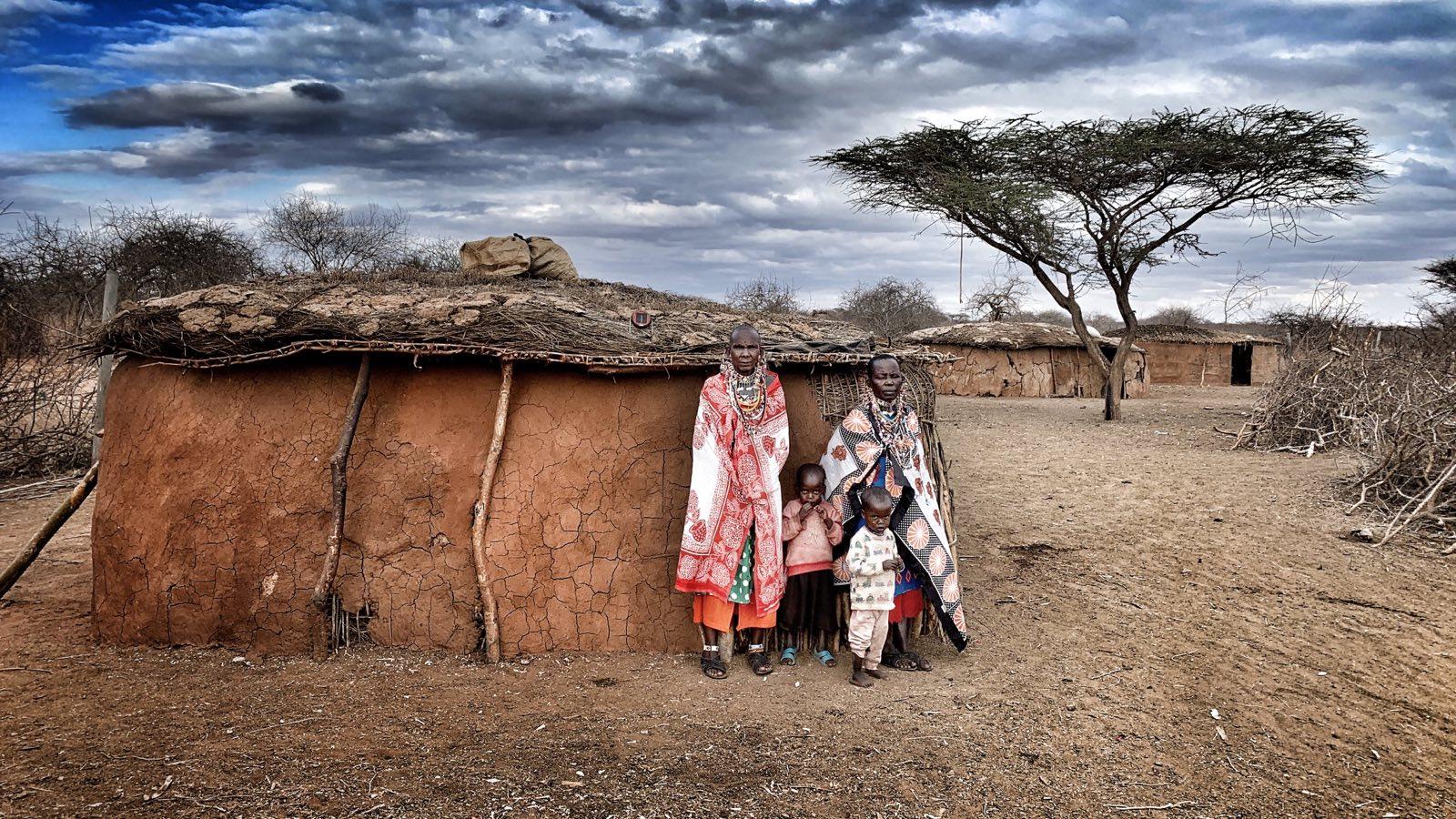Drought Is Becoming A Crisis for GENDER EQUALITY – Byline Times
Sian Norris reports how news that East Africa's drought is entering its fifth year spells danger for women and girls
International development charities are warning the ongoing drought in East Africa threatens to rollback progress on gender equality, with girls at increased risk of child marriage and other forms of gender-based violence.
 Byline Times revealed today that the rainy season in East Africa is set to fail for the fifth year in a row, as the 62nd Greater Horn of Africa Climate Outlook Forum confirmed that the rains may not come this year. Speaking at a press conference in Mombasa, the representatives confirmed predictions made in May, including by the UK Met Office, that the rains would continue to fail.
Byline Times revealed today that the rainy season in East Africa is set to fail for the fifth year in a row, as the 62nd Greater Horn of Africa Climate Outlook Forum confirmed that the rains may not come this year. Speaking at a press conference in Mombasa, the representatives confirmed predictions made in May, including by the UK Met Office, that the rains would continue to fail.
Already, more than 16 million people in the Greater Horn cannot access enough water for drinking, cooking and cleaning. The drought has caused widespread displacement, malnutrition and death in Kenya, Somalia and Ethiopia. The latter two countries continue to struggle with violent conflict.
Sadia Allin, Plan International's head of mission in Somalia and Somaliland, told Byline Times: “East Africa is in the grip of its worst drought in decades. In Somalia, we're seeing extreme, widespread hunger, with parts of the country at risk of famine. The reality is that children are dying, and loss of life on a devastating scale is now a very real risk”.
For women and girls, this food crisis has become a crisis of equality. Gender stereotypes mean that men are prioritised when it comes to food and meal times, with girls given smaller portions or not fed at all. Little wonder, then, that women and girls make up 70% of the world's hungry. At the same time, food insecurity leads to girls being married off at younger and younger ages, to relieve the financial burden on their families.
When livestock dies and crops fail, families are plunged into deepening poverty. They may no longer be able to afford school fees, textbooks and uniforms. The number of children at risk of dropping out of school in Ethiopia, Kenya and Somalia due to the impact of the drought trebled between March and June this year – from 1.1. million to an estimated 3.3 million children, with girls disproportionately likely to leave the classroom.
Often when this happens, girls are required to help out with household chores or to care for younger siblings so their parents can find work. Some children will be sent out to work themselves in order to bring in extra income.
But in the most extreme cases, girls who have left the classroom are married off when still children themselves, becoming trapped in a lifetime of pregnancy, childbirth and gender-based violence.
It's for this reason that the United Nation's children and families agency Unicef has warned that the region's most severe drought in 40 years is leading to “alarming” rates of forced early marriage and female genital mutilation (FGM). In Ethiopia, one of the worst impacted countries, child marriage rates are estimated to have more than doubled over the past year.
This is particularly devastating when for years, there has been real progress in eradicating FGM – a form of child abuse that involves cutting or removing the clitoris and some of the labia. Now Unicef data warns the practice is on the rise: in the Southern Nations, Nationalities, and Peoples' Region in the Horn of Africa, it's estimated that cases of FGM rose by 27%.
The Cycle of Violence
Girls who are married off as children are at risk of rape and further gender-based violence. They become mothers when they are still children themselves. And the loss of schooling means they often struggle to gain financial independence when they are older.
“At Plan International, we're especially worried about the impact on girls,” said Allin. “When food is scarce, girls often eat least and last, or simply go without. On top of that, when families are under financial strain, girls are at greater risk of gender-based violence and early marriage as parents marry off their girls in exchange for assistance. For many, the chance for an education will be lost forever”.
In some parts of Somalia, there has been a 50% rise in gender-based violence, including domestic abuse and child marriage, according to a Unicef survey. In Puntland, a northwestern state in Somalia, service providers told Unicef that child marriage made up 59% of the cases they were dealing with, many of which involved FGM.
Child marriage rates often correlate with increased incidents of FGM, as girls are cut in preparation for getting married. A total of 14 out of the 23 countries affected by the drought are FGM hotspots, with prevalence rates of up to 98%. FGM is a form of gender-based child abuse, with cut girls experiencing a range of long-term health impacts, including trauma, difficulties with menstruation, and pregnancy complications.
Further, women and girls are more vulnerable to sexual violence and intimate partner violence during drought. It tends to be women and girls who are responsible for collecting water – but with water in scarce supply, they are having to make longer and more dangerous journeys. Kenya Red Cross has estimated women and girls are walking more than three times longer than before, up to 30 km in some locations, to get water. The walk is fraught with danger, including the potential risk of rape.
Research published in 2020 found that drought in sub-Saharan Africa was associated with reporting a controlling partner and experiencing physical and sexual violence, with stronger associations among adolescent girls and unemployed women.
“Right now, Plan International is trucking water to drought affected communities and providing emergency cash to help families struggling with severe food shortages,” said Allin. “We're also rapidly scaling up our programmes, with added support for child protection and girls' education. But we urgently need more funds. We have a window of opportunity to act, and we urge the UK public to give what they can”.
OUR JOURNALISM RELIES ON YOU
Byline Times is funded by its subscribers. Receive our monthly print edition and help to support fearless, independent journalism.

This “Eyes on Trafficking” story is reprinted from its original online location.
 ABOUT PBJ LEARNING
ABOUT PBJ LEARNING
PBJ Learning is a leading provider of online human trafficking training, focusing on awareness and prevention education. Their interactive Human Trafficking Essentials online course is used worldwide to educate professionals and individuals how to recognize human trafficking and how to respond to potential victims. Learn on any web browser (even your mobile phone) at any time.
More stories like this can be found in your PBJ Learning Knowledge Vault.
EYES ON TRAFFICKING
This “Eyes on Trafficking” story is reprinted from its original online location.
ABOUT PBJ LEARNING
PBJ Learning is a leading provider of online human trafficking training, focusing on awareness and prevention education. Their interactive Human Trafficking Essentials online course is used worldwide to educate professionals and individuals how to recognize human trafficking and how to respond to potential victims. Learn on any web browser (even your mobile phone) at any time.
More stories like this can be found in your PBJ Learning Knowledge Vault.

